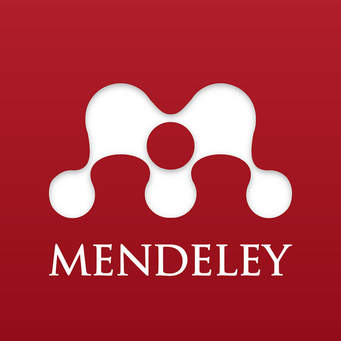Tingkat Pendidikan, Pengetahuan Tentang Gizi Pengasuh, Asupan Energi Dan Protein Balita Usia 12-59 Bulan
Abstract
Background. Health problems in Indonesia and developing countries in general are still dominated by 4 nutritional problems, namely lack of protein energy (KEP), iron anemia problems, problems due to iodine deficiency (IDD), problems with vitamin A deficiency (KVA) and obesity problems especially in big cities. Because food intake is one of the factors that influence a child's nutritional status, it should be noted that the intake of children's needs is appropriate or not, because this is what the child needs to support optimal brain development and body growth. Among them are energy and protein intake. Based on PPG 2018 data The number of toddlers in Sisik Village is as many as 565 toddlers, taken by a sample of 54 toddlers. Of the 54 toddlers, the average level of caregiver education, that is, most of their education levels were low, as many as 40 people (74.1. While the energy intake of under-fives was as large as a severe deficit of 21 people (38.9%). of 54 toddlers in Sisik village, most of the protein intake was above adequacy, as many as 39 under-fives (72.2%).
Research Methods. The research design used was descriptive observational study with a sample of 54 people. Data was collected by direct interview using a questionnaire tool. Data is processed descriptively.
Research Result. Based on the results of the study it was found that the average level of caregiver education in the low category was 41 people (75.9%), the knowledge of caregivers was mostly in the good category as many as 24 people (44.4%), toddler energy intake as much as 21 people in severe deficits ( 38.9%) and protein intake of toddlers mostly above the adequacy of 39 people (72.2%).
Conclusion. The conclusion of this study is that caregiver knowledge does not affect the energy and protein intake of toddlers. The good level of knowledge of caregivers does not make toddlers' energy and protein intake good.
Full Text:
PDFReferences
A.Wawan dan Dewi M.2010. Teori dan Pengukuran Pengetahuan,Sikap Dan Prilaku Manusia. Nuha Medika :Yogjakarta
Merryana Adriani dan Bambang Wijatmadi. 2012.Pengantar Gizi Mayarakat, KENCANA. Jakarta
Soekidjo Notoadmodjo.2012.Metodologi Penelitian Kesehatan. Rineka Cipta , Jakarta
Soekidjo Notoadmodjo.2012. Ilmu Prilaku Kesehatan.Rineka Cipta.Jakarta
Kementrian Kesehatan RI.2014. Buku Survei Konsumsi Makanan Individu dalam Survei Diet Total.
Fardhiasih Dwi Astuti dan Turinia Fitriya Sulistiowati. Hubungan Tingkat Pendidikan Ibu dan Tingkat Pendapatan Keluarga terhadap Status Gizi Anak Pra Sekolah dan Sekolah Dasar di Kecamatan Godean. Di unduh tanggal 12 November 2018
Murty Ekawati, Shirley E.S dan Nova H. 2015. Hubungan antara Pengetahuan Ibu Tentang Gizi Dengan Status Gizi Anak umur 1-3 Tahun Di Desa Mopusi Kecamatan Lalayan Kabupaten Bolaang Mongondow Sulawesi Selatan. Jurnal e-biomedik diakses 15 Desember 2018.
Supariase, I Dewa Nyoman., Bakri, Bachyar., Fajar,Ibnu. (2002). Penilaian Status Gizi. Penerbit Buku Kedokteran.EGC.Jakarta
Linda Ony, dan Hamal D.K., Hubungan pendidikan dan pekerjaan orangtua serta Pola Asuh dengan status Gizi Balita di kota dan Kabupaten Tangerang Banten. Proseding Penelitian Bidang Ilmu Eksaskta 2011.
Hardivian, Sylvia Licha, Pengaruh Karakteristik Ibu dan Pendapatan Keluarga Terhadap Tingkat Kecukupan Energi dan Protein Serta Status Gizi Anak Balita di Desa Suwawal Barat, Kecamatan Mlonggo, Kabupaten Jepara. 2003, www.eprint.undip.ac.id diakses 12 Januari 2019
DOI: https://doi.org/10.32807/jgp.v4i2.137
Refbacks
- There are currently no refbacks.
Copyright (c) 2019 Jurnal Gizi Prima

This work is licensed under a Creative Commons Attribution-ShareAlike 4.0 International License.
Address:
Jurnal Gizi Prima (Prime Nutrition Journal) 2656-2480 Kampus A Poltekkes Kemenkes Mataram, Jurusan Gizi, Jl. Praburangkasari Dasan Cermen Sandubaya Mataram.





